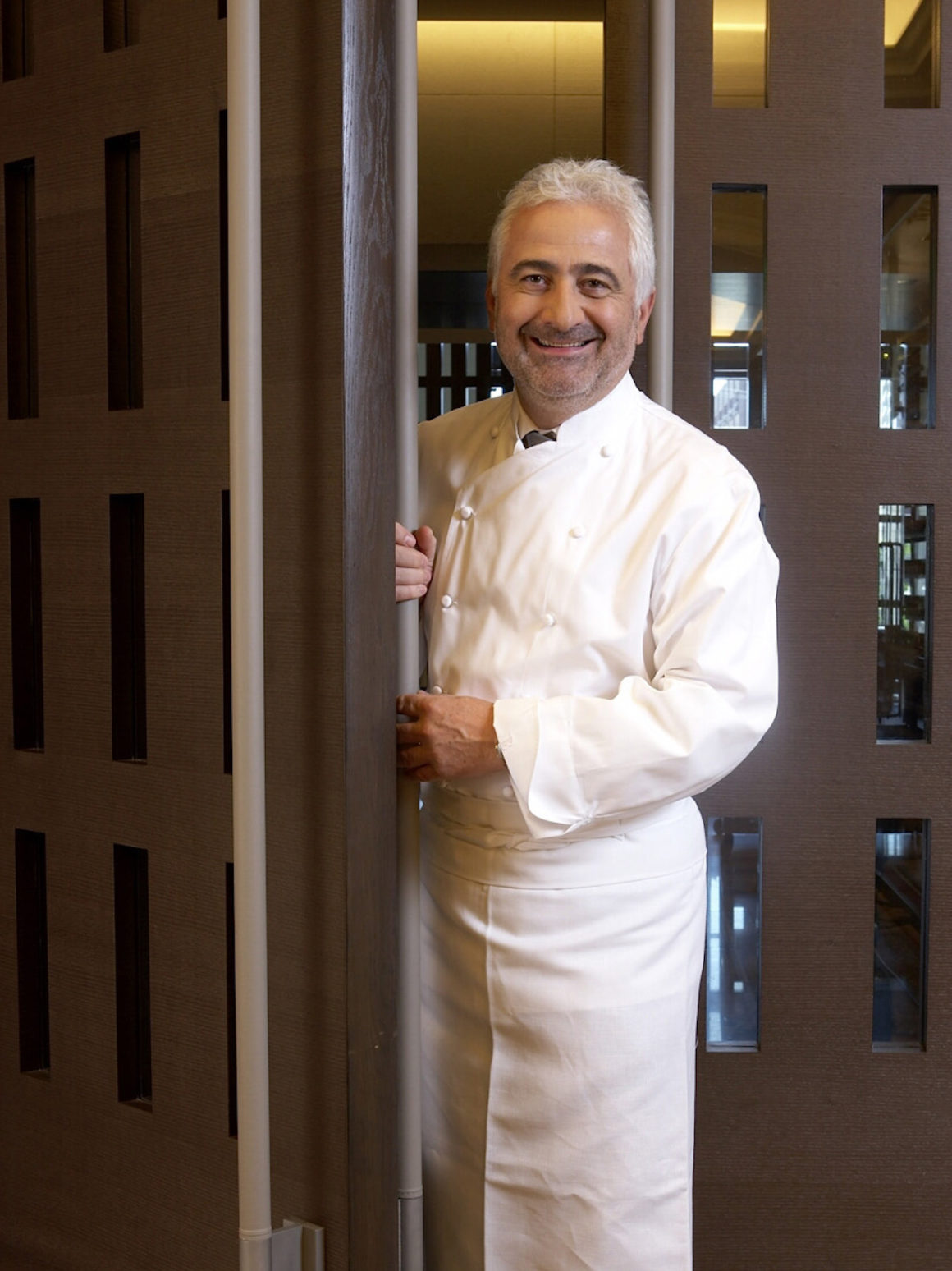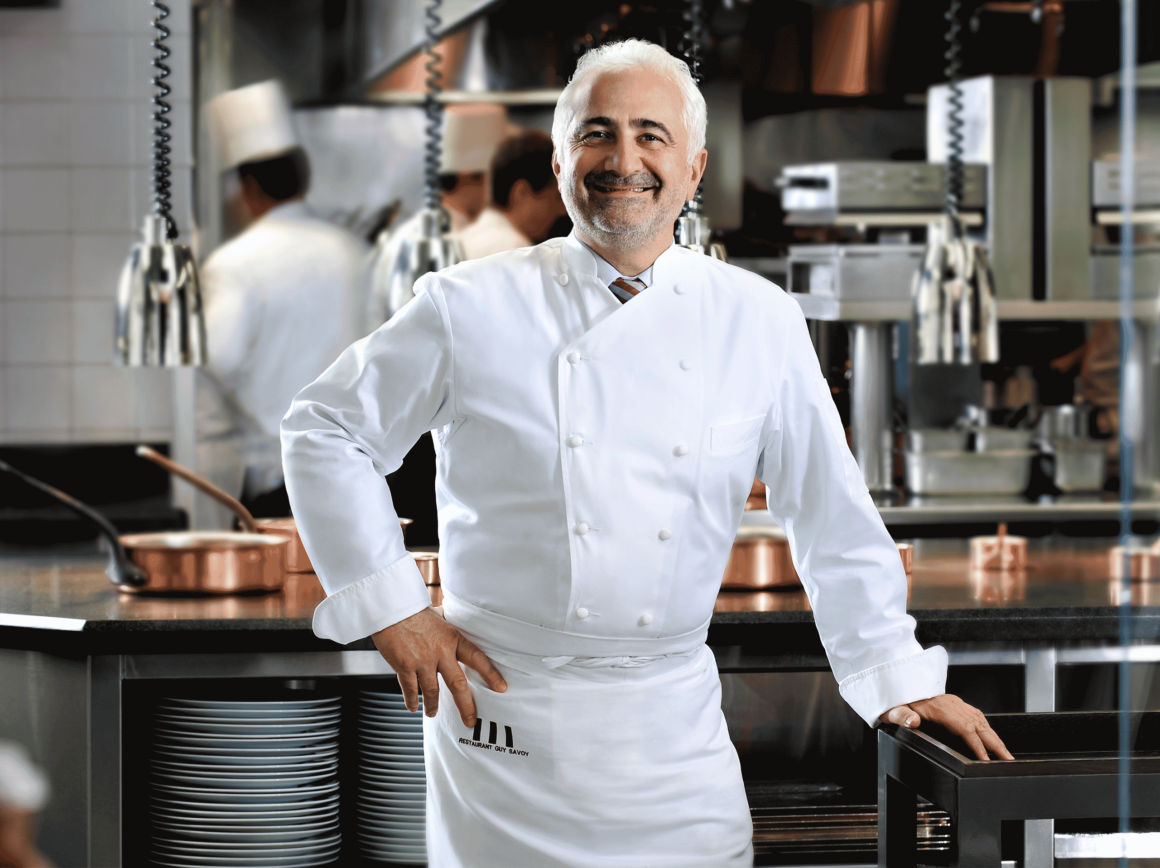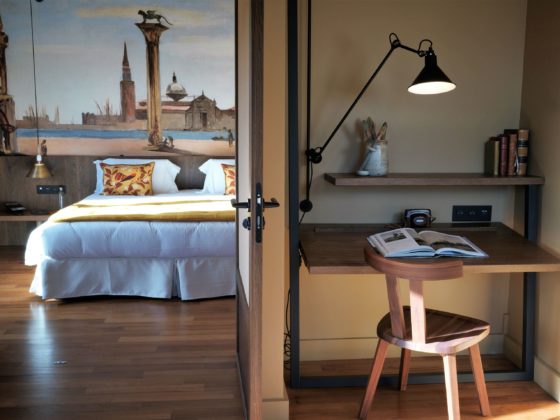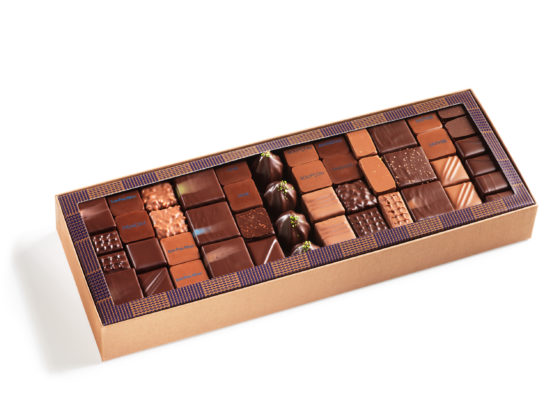His three-starred restaurant, located at the Monnaie de Paris since 2015, was named, for the third year in a row, as the “best restaurant in the world” by La Liste, gathering the opinions and reviews of more than 600 international sources. Meeting with a lord of French gastronomy.
By Romain Rivière
You like to say that in 20 years, gastronomy in the world has evolved more than in the previous 2,000 years. What do you mean?
I am referring to a real and formidable movement, marked by gastronomic research and an abundance of initiatives – culinary creation, restaurant openings – that now extends to all continents. This movement is recent, and originated in France where, thanks to the multiplication of exchanges between continents, more and more women and men from all over the world have discovered a singular gastronomy associated with a true culture and multiple local or regional know-how: which country can boast such a multitude of products, breedings, cheeses, wines, breads or pastries? Back in their countries, they played a role in triggering their own gastronomy. Each country already had its own cuisine, flavors, products or cooking methods, but none of them had such a multitude of trades and such a diversity of products that, combined with a new vision of creativity, allowed them to take their cuisine to the level of gastronomy. This is how the influence of French gastronomy has contributed to the influence of international gastronomy, from which it is also inspired because its creativity and tradition are still alive. Today, the greatest French chefs work in the four corners of the world and, conversely, some excellent chefs based in France are of foreign origin. As for La Liste, it now includes more than 600 sources, whereas four years ago, there were only 150… Who would have said, a few years earlier, that the Chinese delegation for this French organization would be composed, in 2018, of 50 restaurants?
You are one of the greatest chefs in the world and, as such, you represent a form of French culture and art de vivre. This gives you a certain responsibility…
My responsibility is twice a day, for each table and each guest. But in fact, I also have a role to play in transmitting our know-how and our fundamentals. The cooks are in the front line to transmit their knowledge. And today, I see that our brigades are much more international than before. And it is, as I said, what has participated in the great international gastronomy movement.
Since you started in the 70’s, how has your job evolved?
We are no longer in the era of the great brigades of the beginning of the last century, which reproduced the same dishes and the same menus tirelessly. Today, each cook, on the basis of training, can express his or her own sensitivity and contribute to the enormous edifice that is gastronomy, and which, today more than ever, abounds. It can trace a unique path and this uniqueness, which has taken precedence over the competition, I defend. The rise of bistronomy is a good example of this change, as is the work that has been done on tableware, which allows each restaurant, in its quest for uniqueness, to create its own atmosphere. We have become detail-oriented. This evolution is exhilarating.

You define yourself as an innkeeper. Why?
Because this is the image I have of the place where the traveler stops for comfort. This requires different parameters – availability, warmth, generosity – that I try to bring to the restaurant so that the guest feels good. Welcoming the guests, being present at their side throughout the meal are indeed part of my vision of things.
At a time when food is fundamentally evolving, notably under the impetus of influential movements, are your “signature” dishes as successful?
Yes, of course. We don’t really feel the new influences, whether they are vegetarian or vegan. A vegetarian or a vegan can find happiness here, but the fact is that these specific requests are rare. In four years at La Monnaie de Paris, we have only had one vegan requirement. And that’s good, because I can’t defend diversity and limit myself to this or that influence.
Gastronomy is part of the French culture. However, these influential movements have an increasingly strong voice, while the state health institutions favor education through coercion – eating less fat, less sugar, etc. Isn’t there a fundamental problem of education?
Indeed, it is annoying to see with which violence our culture is corrupted by those who should defend it. It is not surprising to see the emergence of deviations, especially among young people: rather than letting them turn excessively to strong alcohol, would it not be better to encourage them to share a good bottle of wine to four? Isn’t wine also a culture of conviviality? Our gastronomy is based on a diversity of products that is unique in the world, offering infinite possibilities for simple and healthy pleasures. It has been invented that children prefer sweetness, but when children are made to taste different kinds of apples in primary classes, it is clear that this is completely false. I believe that by giving children back the knowledge and ability to indulge in simple things, they would perhaps seek less unhealthy pleasures elsewhere. And that knowledge is at your fingertips, in any market. Eating less fat or less sugar is fine, but we’ve been doing it in our kitchens for half a century. The new kitchen of the 70’s was also that.
Four years after your installation at the Monnaie de Paris, what is your assessment?
The first year was not the easiest, because the team had to find its marks. But we have evolved a lot and today, we can take full advantage of this extraordinary setting which allows us, even in the kitchen, to bathe in light and to benefit from a view on the Seine on one side, and on the courtyard of the Remises on the other. For 2019, we plan to create a new dish each week.












